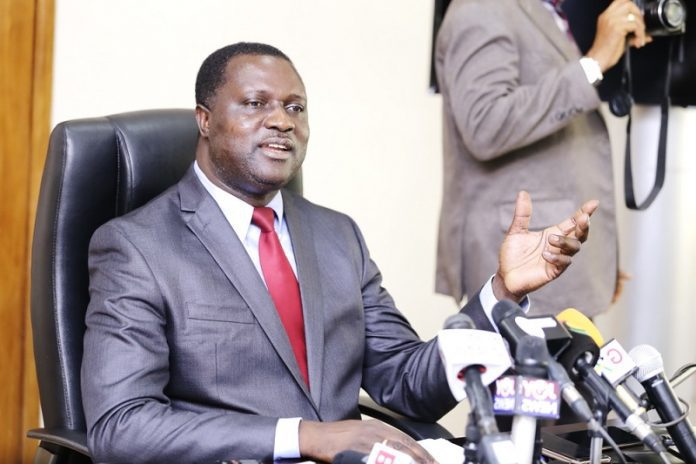The Education Minister, Dr. Yaw Osei Adutwum, has disclosed that distribution of the first batch of 450,000 free tablets to students under the Smart School Project will take place this week.
The tablets are fully funded by the Ghana Education Trust Fund (GETFund).
According to the Minister, the distribution process has been carefully organised into three phases to ensure the effective delivery of 1.3 million tablets to specified schools across the country.
In an interview on JoyNews, the Bosomtwe lawmaker pointed out that this move by the Akufo-Addo government, under the Smart School Project, is central to its “digitisation agenda” for all sectors across the country.
“The 450,000 is a little less than 30 percent, the deployment is such that it is in three phases. The first phase which is hitting the regions and schools in the next coming week, is going to 32 schools in the 16 regions,” Dr. Adutwum explained.
He went on to talk about the monitoring system put in place to guarantee the tablets are distributed efficiently.
“Once it gets to the school, there is a dashboard that informs us the tablets are here. The whole idea is to ensure that you will do a phased approach to deployment and don’t get the system overwhelmed,” he emphasised.
“Once we get them to the 32 schools, then within a week or two thereafter the rest which is phase two also starts moving to the schools, so it’s a phased deployment,” he added.
He further noted that plans are far advanced to gradually phase out textbooks by integrating them onto the tablets.
People also read:
- Council of Private Schools questions rationale for Smart Schools Project
- Ghana Smart School Project initiative: Students can take tablets home – Ministry of Education PRO
He added that ICT coordinators in schools have provided training to teachers and will continue to train schools receiving tablets on their effective usage.
Dr. Adutwum also maintained that the investment in the tablets is equally important, despite concerns that the move is a “misplaced priority.”
“Logistical challenges of the Free SHS programme are separate from budgetary constraints, clarifying that funds allocated for this tablet project under the government’s digitalization agenda cannot be diverted to address feeding challenges faced by students under the policy.
“The interesting thing about Free SHS is that you can have logistical challenges and that’s not a budget issue, so we have 1.4 million children miles away that we are feeding a day, you can have challenges where food may not have reached a certain location on time,” Dr. Adutwum explained.
He clarified that the cost of each device was $250, contrary to claims that the unit price was GHS250. This means that the first batch of 450,000 tablets will cost 112.5 million dollars.


